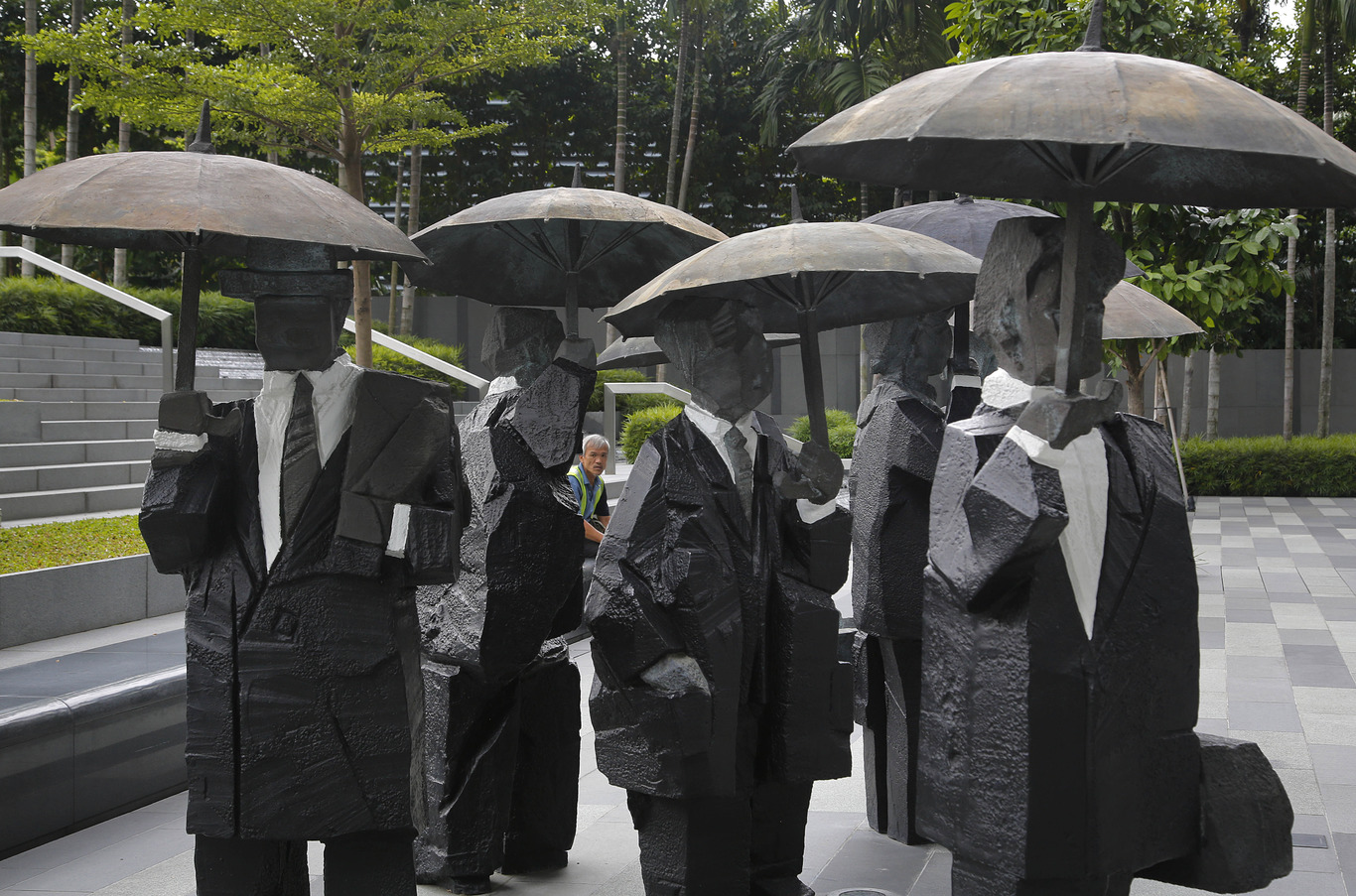Times are changing even though dark suits and shoes still dominate the finance sector
Some quarters of the banking sector are slowly adopting the business casual approach to office wear.
THE UK GOVERNMENT’S brown shoe report caused much debate, consternation and amusement over the last week as many Irish employers were left questioning their own dress code policies.
In recent years, Hays Ireland has been afforded a unique vantage point in experiencing and advising on the changing trends and expectations among Irish employers and employees. One major differentiation between the Irish and UK employer market is the heightened visibility and influence of the tech sector in the Republic.
In a very short space of time, the rapidly growing size and influence of the Irish tech sector has largely confined the strictly suit-and-tie dress code to a few select fields, like finance and government.
The Facebooks and Googles of the world hold creativity and innovation at their core and a traditional corporate uniform would by definition contradict that philosophy. One needs only to look to some of tech’s titans for sartorial inspiration.
Mark Zuckerberg has famously championed the hoodie and t-shirt, Steve Jobs donned his signature black polo neck jumper, blue jeans and grey running shoes for every Apple product launch and Bill Gates, despite being one of the world’s wealthiest and powerful men, often delivers keynote speeches in a jumper.
Although we now live in a world of dressed-down tech billionaires and scissor-wielding entrepreneurs like Richard Branson, who is ready to slice off unsuspecting ties because he thinks they are “one of the most pointless traditions of the western world”, what to wear to work can still be a tough call. Especially for young graduates looking for work in more conservative sectors.
 Mark Zuckerberg (left) and Samsung's DJ Koh
Mark Zuckerberg (left) and Samsung's DJ Koh
Fashion ‘faux-pas’
The recent British Government report into socio-economic diversity in the workplace found that investment banking has such inflexible barriers to entry – particularly regarding dress code – that individuals from non-privileged families are often at a severe disadvantage.
Nowhere is that more demonstrated than in the city of London, the nerve centre of global financial services. The city is a testosterone-fuelled microcosm of rival banks and financial services companies.
Business is cut-throat and fast-paced. To land a top job, hopeful applicants must be willing to play by the rules, no matter how whimsical or arcane they may seem. Some are liberalising their approaches to dress codes and hiring practices.
However, most companies are keen to retain their elite image. Interviewees may be reasonably shown the door on account of a minor fashion faux pas, like a loud tie or brown shoes.
While Ireland doesn’t have an exact equivalent of the city’s investment banking scene, Hays Ireland has a number of Irish banks and insurers among its clients and the general expectation in Dublin’s burgeoning financial services sector is still toward a more conservative dress code.
Although there hasn’t been a report like the British Government’s in Ireland, anecdotally at least, adherence to dress codes in banks and finance companies tends to be more a reflection of maturity than class.
In other words, an arguably less stratified class structure or a culture of sartorial sophistication still very much in its infancy may mean dress code is a less prominent performance indicator in Ireland than the UK.
 Perfect interview outfits according to a study
Perfect interview outfits according to a study
Advice for graduates
Fresh out of college, young cash-strapped graduates can be reluctant to invest in quality tailored suits on top of their rent and bills. Instead, many opt for poorly fitting off-the-rack varieties that follow the fashion of the day, like slim-fit blue jackets and trousers.
In banking and finance, we would still advise prospective applicants toward darker tailored suits and black shoes – new trends and colours are generally frowned upon. Awareness of this shows these employers that applicants have done their research and are open to moulding themselves to the job, rather than the other way around.
Times are changing, however. Many foreign banks operating in Ireland prefer a relaxed ‘business casual’ dress code with slacks and casual dress shirts, perhaps because most of their roles fulfil back office functions rather than client-facing ones.
European finance companies, in contrast to their Irish and British counterparts, also tend to be much more open to brighter dress.
As the tech industry continues to wield more influence and businesses focus more on innovation and driving change, we may well see banking and finance follow suit and adopt more informal dress codes en masse in the decades to come.
Sara Farrelly is a recruitment consultant with Hays Ireland.






